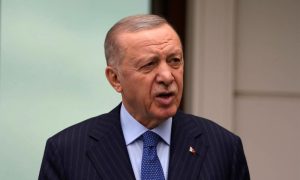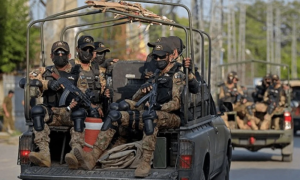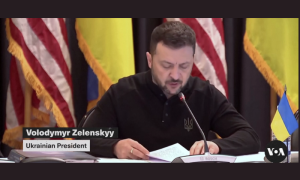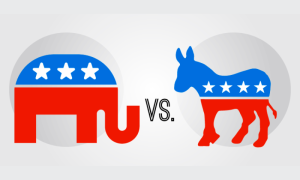JERUSALEM: Sven Koopmans, the European Union’s envoy for the Middle East, has vowed to push for a two-state solution despite Israeli Prime Minister Benjamin Netanyahu’s stubborn opposition to a Palestinian state.
In an interview with AFP, Koopmans emphasized that while Netanyahu’s government strongly opposes the creation of a Palestinian state, the EU continues to advocate for a resolution to the Israeli-Palestinian conflict based on the establishment of two separate states.
“Netanyahu’s explicit rejection of the two-state solution means he has a different viewpoint compared to much of the rest of the world,” Koopmans stated.
He said with the Gaza war ongoing and Israel needing international support, Netanyahu’s government cannot indefinitely disregard European Union views on resolving the conflict.
However, Koopmans asserted that this divergence should not halt efforts towards achieving peace. He highlighted the European Union’s active role in promoting dialogue and seeking solutions to alleviate the ongoing Gaza conflict and address human rights issues in the region.
“The EU has extended an invitation to Israel to discuss matters concerning Gaza and human rights, and we expect substantive discussions on these issues,” Koopmans said.
The envoy expressed grave concern over humanitarian conditions at the Gaza border, labeling the situation where aid trucks are delayed as “completely unacceptable.”
Furthermore, Koopmans condemned incidents of Israeli settlers’ violence against Palestinians in the occupied West Bank, describing some attacks as “genuine terrorism.”
Since his appointment as the EU’s special representative for the peace process in 2021, Koopmans reiterated that the EU remains one of the strong proponents of a two-state solution. He referenced the EU’s 1980 declaration affirming Israel’s right to security alongside the legitimate rights of the Palestinian people, while criticizing Israeli settlements as a significant barrier to peace.
Despite internal divisions among EU member states regarding Middle East policy, Koopmans emphasized the collective strength of the 27-nation bloc, highlighting its role as Israel’s largest trading partner and a leading donor to the Palestinians.
“Our priorities include ending the suffering in Gaza, preventing regional conflict, and revitalizing the peace process towards establishing a free state of Palestine alongside a secure Israel,” Koopmans outlined.
Acknowledging differing perspectives within the EU, Koopmans noted recent actions by individual member states, such as Spain, Ireland, and non-EU member Norway, recognizing Palestine, which he suggested could contribute positively to resolving the conflict despite Israel’s objections.
Looking ahead, Koopmans reaffirmed the EU’s support for strengthening the Palestinian Authority and its governance capabilities, particularly in Gaza, to foster conditions conducive to peace. – AFP


























